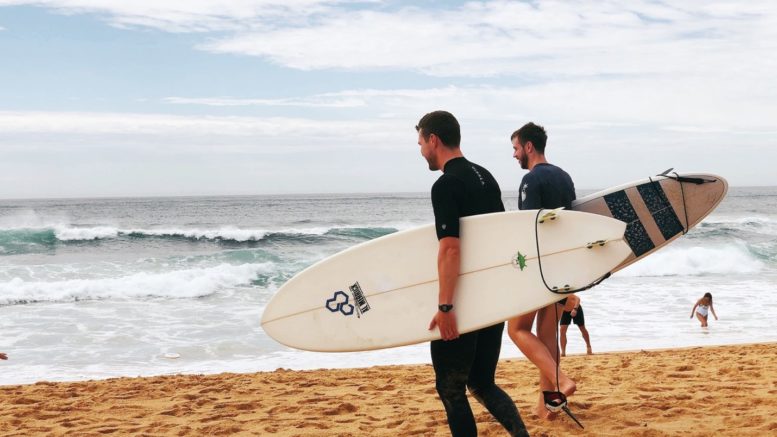By Sydney Preston
For surfer Kai Barton, being in the water and paddling out into the ocean to catch some waves has always been the key to finding a stress-free life.
“You wouldn’t think about anything,” he said. “Everything, every thought in your head, would just completely wash away.”
Seventy-six percent of adult Americans have severe stress about the future resulting in physical manifestations such as headaches, sleeping habit changes and fatigue, according to the American Psychological Association (APA). A fast-paced lifestyle is creating an abundance of stress in the lives of Americans all throughout the country.
But what surfers like Barton have come to understand is how the sport gives a sereneness to their everyday lives. Surfer ideology is that when someone has “no control” over a situation, they have to believe what’s meant to be will be.
“Don’t dive too deep and think about things too hard,” said Barton, who has been surfing with his family since the age of five.
According to the APA, stress itself cannot kill a person; however, the long-lasting impacts of stress can result in health issues varying from heart attacks to certain types of cancers.
If 76% of Americans are feeling this anxiety, how are surfers living without it?
Researchers have discovered that being in nature has been found to reduce stress levels. The American Heart Association (AHA) said working out in nature has been proven to reduce stress more than working out in an indoor setting.
Callie Hertz from the Flagler College Surf Team said that surfing is an escape from the daily grind, whether it’s the constant connection we have to our phones or the onslaught of social media.
“When your sport revolves around nature, nature chooses what it wants to do and you have to go with whatever nature decides,” she said.
Hertz was previously a gymnast, but quickly realized that the demanding sport caused an abundance of anxiety impacting both the surfer’s mind and body. Surfing granted her the competitiveness she craves while also allowing her to have fun and clear her mind in the waves.
Relying on the ocean to provide a wave is what gives surfers that “go with the flow” attitude. The open ocean is full of surprises, while out on the water surfers are able to connect more with nature as they often come in contact with marine life.
Interacting with animals has been discovered to lower cortisol levels in humans, researchers said. Cortisol is a stress-related hormone in the body.
Surfers will be sitting on their boards waiting for the next wave and see turtles, dolphins, and other marine life swimming below them, Barton said.
Darby Moore, the coordinator and photographer for Surf Station Surf School in St. Augustine, Fla., said the surf community is one that cares for one another deeply.
Surfing is an individual sport, but the community built around it is remarkable, she said, adding that up and down the coast, there will always be familiar faces in the water.
Barton has traveled all over the world chasing waves in both competitions and for fun. No matter the country, no matter the ocean, surfers come to one another with a sense of deep trust and a connection like no other.
There is nothing like surfing, Moore said. The weightless feeling when riding a wave, the spray of the water on your face. Moore has searched for anything that gives her the rush that surfing does, but nothing has come close.
“That feeling of being insignificant in such a huge body of water, it’s hard to come out of the water and still be as upset about whatever you have going on in your personal life,” she said. “You’re just a very small piece of the puzzle.”



Be the first to comment on "Surfing the Stress Away"